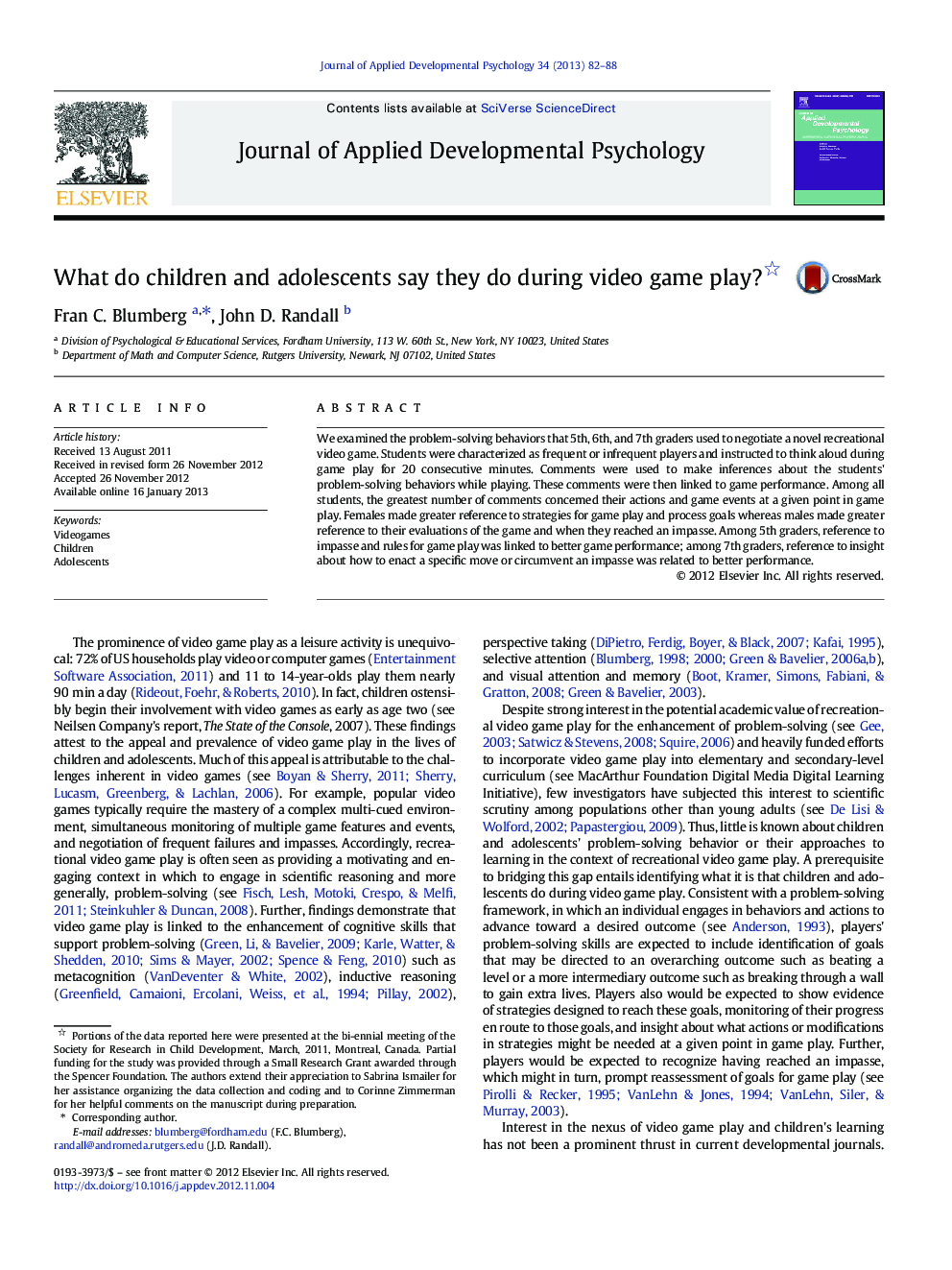| Article ID | Journal | Published Year | Pages | File Type |
|---|---|---|---|---|
| 359878 | Journal of Applied Developmental Psychology | 2013 | 7 Pages |
We examined the problem-solving behaviors that 5th, 6th, and 7th graders used to negotiate a novel recreational video game. Students were characterized as frequent or infrequent players and instructed to think aloud during game play for 20 consecutive minutes. Comments were used to make inferences about the students' problem-solving behaviors while playing. These comments were then linked to game performance. Among all students, the greatest number of comments concerned their actions and game events at a given point in game play. Females made greater reference to strategies for game play and process goals whereas males made greater reference to their evaluations of the game and when they reached an impasse. Among 5th graders, reference to impasse and rules for game play was linked to better game performance; among 7th graders, reference to insight about how to enact a specific move or circumvent an impasse was related to better performance.
► Fifth through seventh graders' problem-solving behavior during a videogame was studied. ► Think-aloud protocols were used to make inferences about problem-solving. ► Girls made greater reference to strategies and to proximal goals than boys. ► Fifth graders' reference to impasse and game rules was linked to better game play. ► Seventh graders' reference to insight and impasses was linked to better game play.
